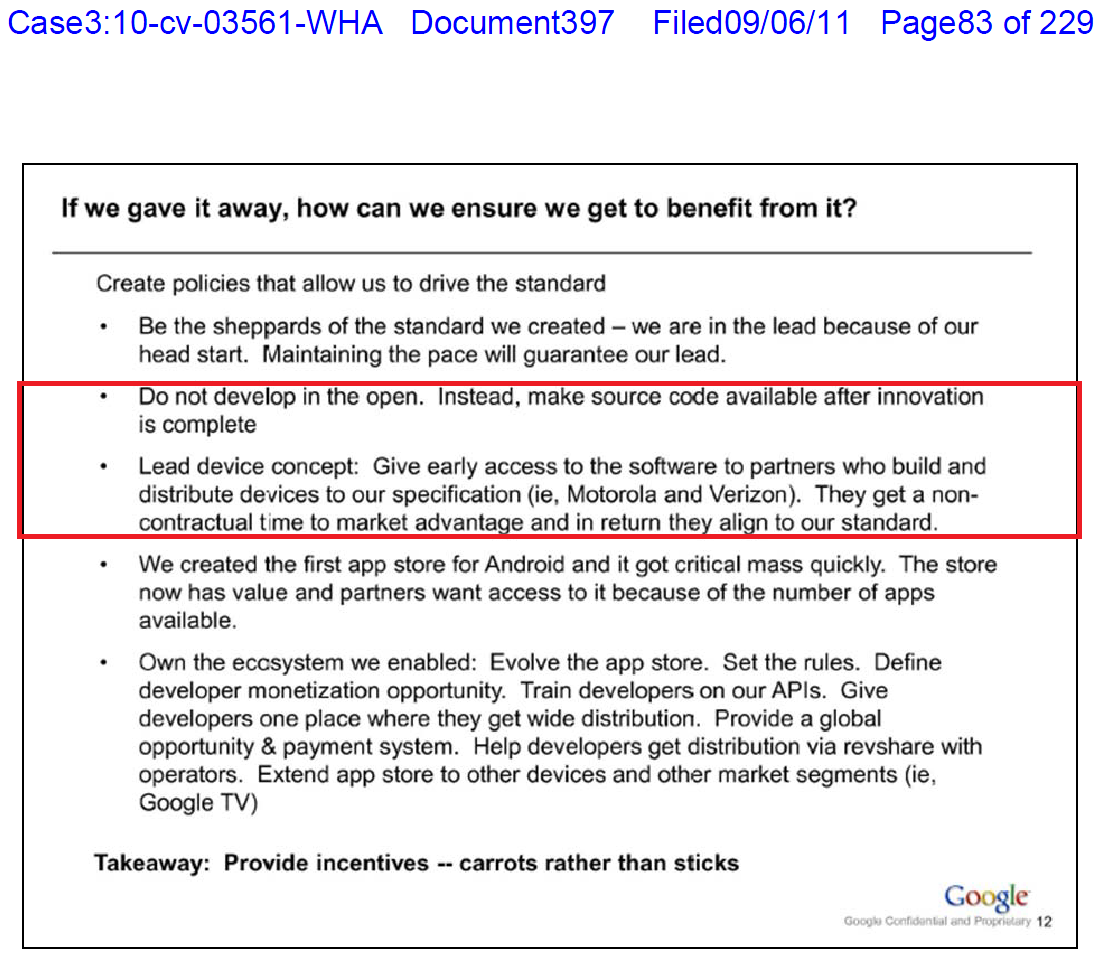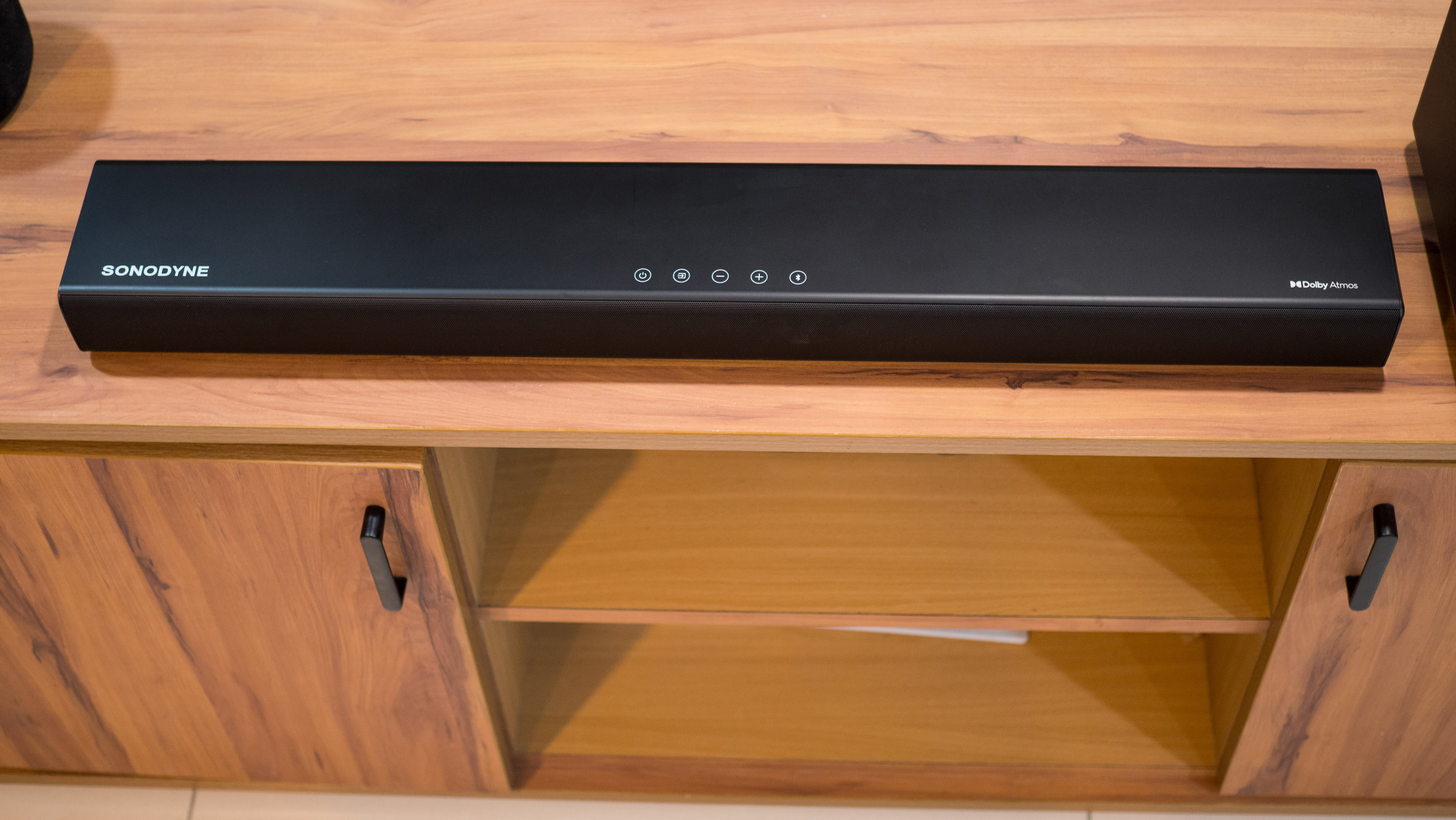Legal filing lends credence to claims of Google showing preferential treatment

Can't say this surprises us much. Think back to mid-May, when This is my Next's Nilay Patel did a bang-up job explaining that whole Google-Skyhook brouhaha and the alleged strong-arming of carriers and manufacturers to conform to Google's way of thinking (developing, really) when it comes to Android.
Fast forward to now. FOSS Patents' Florian Mueller has been dissecting documents just filed in the Oracle v. Google case (which involves the Java code used in Android), and tucked in there is the bit of a bombshell you see highlighted above. Let's take a look.
"Do not develop in the open. Instead, make source code available after innovation is complete."
Sounds horrible, doesn't it? But that's actually the way Google's been doing things all along. It all goes back to your definition of Android being "open." Or, as our iPhone-loving pal Rene likes to call it, "Openy." Yes, Android is "Open source" in that the code is eventually made public. (At least it was until we got to Android 3.x, which is still locked up tight.) But Android's never really been developed in public view. For that, look to my favorite example, Mozilla. You get nightly builds. Changes to the source code are immediately made public. Same goes for the CyanogenMod project. While it's based off the released Android Open Source project code, from that point out it's a community endeavor.
No, it's the second bullet point that's more damning.
"Give early access to the software to partners who build and distribute devices to our specification (ie, Motorola and Verizon). They get a non-contractual time to market advantage and in return they align to our standard."
That's really not a surprise either, but it's more evidence that in the land of Android hardware development, it's not exactly a level playing field. (We're also wondering just where Verizon putting Bing on a number of phones fits into aligning to Google's standard.)
This, of course, is all the more important since Google purchased Motorola. While Andy Rubin said that Motorola will remain independent and that it won't become the de facto manufacturer for the Nexus line, documents like this aren't exactly giving us warm, fuzzy feelings.
Source: FOSS Patents
Get the latest news from Android Central, your trusted companion in the world of Android

